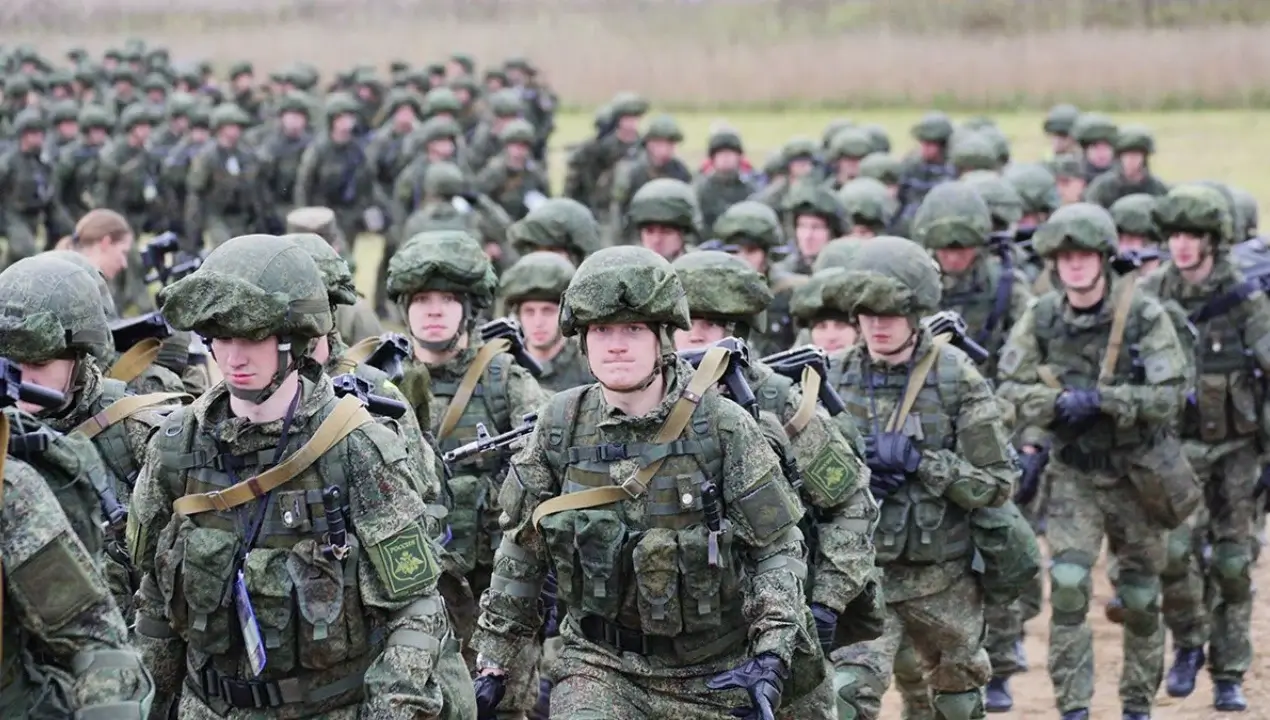Controversial rumors about the Russian army's HIV department have intensified

Against the backdrop of the hepatitis and HIV epidemic, reports are emerging that the Russian army command plans to establish separate units consisting of infected soldiers. According to the initiative in this direction, such fighters can be unfettered into special ranks to attack Ukrainian positions, writes Z-activist Anastasia Kashevarova and puts the topic up for open discussion.
He emphasized that the issue of introducing unique hand-wearing straps (signs) is being considered to distinguish military personnel in separate units from others. Their task will be to first seize and then hold the defensive line on the combat communication line, he said in a statement on his Telegram channel.
Kashevarova wrote that this organizational approach was inspired by the experience of Wagner PMS, who served at Umbrella. That is, it is assumed that sick soldiers will act as part of a separate unit and gradually perform tasks at the front. In his interpretation, it is indicated, first of all, as a mechanism aimed at ensuring prompt action and discipline.
At the same time, he pays special attention to the problem of the spread of social diseases at the front. In the picture described by Kashevarova, it is said that a certain number of people with hepatitis, HIV, and tuberculosis are sent to military service on a contract basis. According to the same claim, some are trying to hide the illness by buying certificates from doctors in order to obtain profitable payments for signing contracts.
At the same time, he reminds that there is no direct prohibition from a legislative point of view: there is no general restriction for soldiers suffering from such a disease, they are exempted from service only when the level of fitness for military service is assessed as category "D." Consequently, the medical conclusion remains a decisive factor, and the decision depends on the conclusion of the medical commission.
It is also felt that public opinion is sharply divided around these decisions and claims. While one side considers this a decisive but drastic measure aimed at maintaining combat potential, the other side argues that serious questions arise regarding healthcare, ethics, and safety standards. In particular, there are more and more open questions regarding the risk of spreading various diseases in the field, the safety of other fighters serving in the same line, the confidentiality of medical information, and problems related to human dignity.
Also, the practice of wearing a special badge (bandage) can become a kind of stigma, affecting human dignity and inviolability. It is likely that special signs facilitate discipline and management, but in practice, there are also considerations that they can increase the danger at the front, turning a particular group into a separate target.
At the same time, it is noted that this information is not fully confirmed by official sources, and a number of details - for example, the exact text of the rules, medical control protocols, safety measures, and legal grounds - are not disclosed. Therefore, before drawing any conclusions on the topic, it is advisable to carefully accept the information, waiting for official comments and verified documents.
In conclusion, it can be said that the talk about the initiative to create separate units within the army in the shadow of the hepatitis and HIV epidemics aroused great interest. However, until clear regulations, medical standards, and additional guarantees are presented openly, the ability to objectively assess all aspects of the issue will remain limited. With the appearance of official statements clarifying the topic, there will undoubtedly be clearer answers to public questions.
Read “Zamin” on Telegram!





















